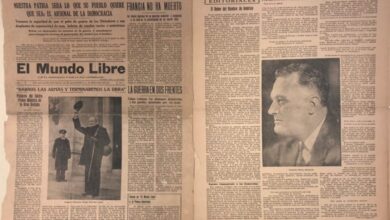Latin American Tour Spurs Foreigner’s Surprising Singer Reunion

Legendary rock band Foreigner is shaking up its plans for a highly anticipated Latin American tour. Amid international travel issues for frontman Kelly Hansen, original vocalist Lou Gramm is stepping in—sparking excitement, controversy, and questions about the group’s global future.
Kelly Hansen Steps Back, Lou Gramm Steps Forward
According to a report by Blabbermouth.net, Foreigner’s current singer, Kelly Hansen, has announced that he will not join the band’s spring 2025 run in Latin America, which kicks off on April 28 in México City. Hansen cited “issues” limiting his appearances outside the United States, though neither he nor the band has provided details on what those issues entail. The decision came as a surprise to many fans, who have become accustomed to Hansen’s high-energy performances over his nearly two-decade tenure with the group.
In Hansen’s absence, Foreigner revealed that the original singer, Lou Gramm, will rejoin the band as a guest vocalist. Gramm, now 74, sang on iconic hits such as “Cold As Ice,” “Hot Blooded,” and “Feels Like the First Time” and was last seen onstage with Foreigner on March 15 in Clearwater, Florida, performing two classics—”I Want to Know What Love Is” and “Hot Blooded.” While Gramm had previously expressed intentions to slow down his touring schedule, he has agreed to appear in Latin America, a region the band is eager to reach despite Hansen’s unavailability.
What complicates this arrangement further is the presence of guitarist Luis Maldonado, who has been recording Spanish-language versions of foreign hits and will also handle many lead vocals. This multi-singer lineup suggests an unusual dynamic, particularly since Gramm has been candid about his concerns regarding sharing the stage with another vocalist and about certain songs he wishes to perform. The resulting blend of classic and modern Foreigner could generate heightened anticipation for Latin American fans, yet it may also reignite older tensions within the band.
A History of Conflict and Nostalgia
Foreigners had shifts in their members and personal troubles. Guitarist Mick Jones, an Englishman, made the group with both British plus American musicians in 1976. The band gained global renown from songs such as “Juke Box Hero,” “Urgent,” and “I Want to Know What Love Is,” a top hit. Lou Gramm aided the creation of their specific rock style, and he fronted Foreigner during the late seventies and the eighties. After discord, Gramm departed in 2002; moreover, health issues arose, and he largely stopped extensive tours.
In 2005 Kelly Hansen became Foreigner’s singer – it began a new era. He presented the band to a younger audience – he allowed them to keep traveling the world. The combination of Hansen’s vocals, Jones’ direction and different supporting players led to stable membership in Foreigner. Yet many fans held onto hopes for Gramm’s return. Brief onstage reunions in 2017 and 2018, and more recently in March 2025, offered nostalgic flashes of the band’s classic hits with Gramm’s original voice.
Hansen departed from Latin American events, so Gramm’s job seems likely to grow. But difficulties arose. Gramm gave criticism about the group to the public – they denied him certain favored songs to keep overlapping with Hansen away. He told Blabbermouth.net that management at times discouraged him from singing hits like “Juke Box Hero” and “I Want to Know What Love Is,” fueling rumors that band politics and personal egos remain an ongoing challenge.
Latin American fans, many of whom have never witnessed Foreigner’s original singer, may see Gramm’s return as a unique opportunity. The band’s name—and many of its founding ideals—stemmed from its multi-national makeup, so perhaps this tour will be a fitting tribute to that cross-cultural ethos. Hansen’s nonattendance reveals troubles within the group – this lets fans contemplate if Foreigner’s initial energy obtains recovery – or if this organization only sustains the trip.
Latin America’s Rock Legacy and Foreigner’s Future
Foreigners will visit Latin America, and it emphasizes the region’s ongoing affection for classic rock. The continent exists as an active market for these older bands – they give performances to sold-out shows with audiences full of excitement. In México City and smaller places across Central and South America, devotees seize on powerful memories and well-known hits from the 1970s and 1980s. Lou Gramm has a distinct voice, and it can affect a region that values ageless tunes besides famed music icons.
Band representatives stated Gramm would sing at some shows. Luis Maldonado, a guitarist, along with Geordie Brown, a touring musician, will sing some songs – it is unclear if Gramm plans a major tour or will only sing a few songs. He talked about retirement, and he had worries about extended travel. This plan exists because Mick Jones, the band’s one member who left from the beginning, cut back on live shows because of health problems – that condition makes the idea of a “classic lineup” hard, and fans do not know what to expect from the songs, the energy or the type of show.
Kelly Hansen is taking time away from the tour, which highlights a general talk about how bands with long careers manage trips worldwide, plus duties to themselves. Is he gone because of work-related travel issues or personal items? Will this lead to a major shift in the Foreigner’s future? We can only assume. These rumors show clearly that classic rock bands must always change to meet fan wants and new band memberships.
For Latin America, the spring 2025 tour is less about controversy and more about a chance to experience the band’s massive hits firsthand. Despite the swirl of backstage tension, the show must go on—some fans simply yearn to hear favorites like “Cold As Ice,” “Hot Blooded,” and “Feels Like the First Time.” And for Lou Gramm, this tour may represent a swan song of sorts, a final bow in front of adoring crowds that have kept Foreigner’s music alive for nearly half a century.
Also Read: Cuba Film Premier: Díaz Unveils Urgent ‘Adiós Cuba’
Foreigners choose to welcome Gramm back, which indicates an effort to respect the band’s history, at least during this Latin American series. When this partnership sparks new beginnings or heightens inner conflict, it will show the group’s enduring fame and the region’s dedicated fans. Established performers often use fond memories to keep energy – few locations appear more hopeful or difficult than those awaiting them through Latin America.





